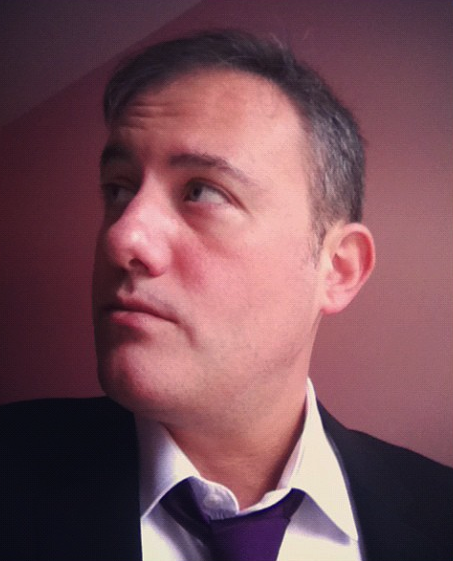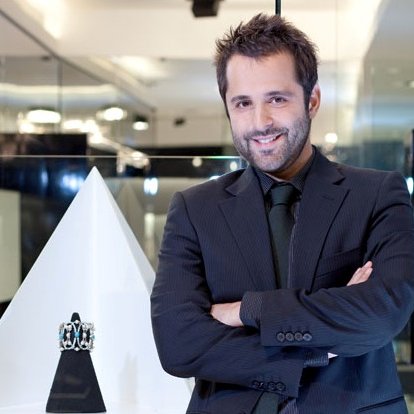Your Interviews
 Ten minutes with....
Ten minutes with....
Can Saracoglu (MBA 2000)
What is your current position/occupation?
I am a serial entrepreneur and business angel. I focus mainly on the consumer Internet, Cloud, Social Media and its applications, as well as mobile applications development and location based services.
Why did you choose to study at Cass?
I had been to the U.S. and the U.K. prior to my MBA. I found the human interaction in the U.S. to be very reserved and distant. It was much more fun to live in the U.K. For instance, you can walk into a pub in London and be friends with total strangers from various backgrounds. So London itself was one of the main reasons for my choice. I had always believed that the MBA experience should be about more than taking a few classes in business. It should be a life experience to remember. When I look back, I think I was absolutely right.
What is your most treasured memory of your time at Cass?
Shiv Mathur was lecturing in corporate strategy. He made up a case of a company. He explained the case in 10 minutes and told us that things were not going brilliantly for the company but there was hope. Between the lines he also emphasized there was a bigger company that was interested in buying it, and that they were valuing our company more than we did. However, he hid this fact as if it was not particularly important.
He asked the class what would we do in such a case. I was the first to answer and throw several ideas to uplift the company. As a marketer I was creative in finding solutions. He said: “Nice try but you are not thinking the unthinkable” and warned me that I should not be too emotionally attached to the company just because I founded it. It was just business after all.
Then he asked the class if there were any other ideas. One of my classmates, a finance guy, said that he would simply sell the company. In a deliberately sophisticated case, he got the simple point. He saw the bottom line while I missed it. I remembered this lesson all my life. Years later, when I managed my own exit from the company that I founded, I did not over think or put my emotions in the subject matter. This was the most valuable memory and lesson. I took it with me and I have deployed in my own life.
How did Cass influence your Career Development?
I became a master of pitches. After the MBA I worked with various multinational brands such as P&G, Coca-Cola, L’Oreal. I managed to win most of the pitches simply by approaching the matter out of the box and deploying the presentation skills that I developed over the course.
I became aware of the true value of networking over the course. And being a Londoner, at least for a while, was a life enhancing experience that made me a more interesting and sociable guy. Paul Dobson was also a great lecturer and I learnt so much about managing human capital from him. This was invaluable when I ran my own digital agency, where your core asset is human capital alone.
How did you get involved in the media / digital sector?
I used to work at Bosch GmbH as a product manager in their marketing department. Although I trained as an engineer I’ve always been interested in technology and innovation. While at Bosch I created an online marketing initiative that won an important global innovation award. Then I came to London to do my MBA.
Internet was perceived as the next big thing at that time. Hence, I decided to combine my engineering background and marketing experience with the Internet. While I did an MBA in marketing, my personal interest was moving towards the Internet. For the graduation project, I managed to get a project from one of the WPP companies, Hill and Knowlton. A Cass alumnus, Alun James who used to work at H&K, was the initiator and project owner. I would like to thank him for his vision, because it was the year 2000 and he wanted to see the impact of digital media on marketing communications.
Now we have Social Media, which has changed the whole brand communications game. But at that time, this was very novel; I focused on how FMCG brands would make the Internet work for their brand communications. It was a very new space at the time as people mostly thought about the Internet as just another retail channel..
You co-founded and then sold your company Litespell in 2010. Having built it up from the ground, can you detail what that experience was like?
I believe that I had a strong vision but also had the courage and energy to realize it. When I first founded Litespell in 2003, there was nothing beyond web site development agencies in Turkey. Actually, this was very pretty much the case all over the world as well. I positioned the company as a next generation advertising agency that deployed brand communications over the Internet.
To differentiate, we chose not to develop web sites, but to create social media centred, creative, rich media campaigns like advergames, viral movies and so on. We were the first digital agency in the country to use real video footage in a flash game, to develop and execute the first viral campaign, and to shoot the first viral video, where branding was subliminal.
That sounds nice, but in reality it was really hard. Demand from the advertisers was initially very low and it took a non-stop creative and business development effort to convince the advertisers us the new channels.
It was particularly hard in an emerging market like Turkey. But when I look back I see that I made it harder for myself as well. If I had the wisdom and confidence that I have now it would probably be much easier. But this was a path that I had to walk through in order to grow personally.
Luckily, those efforts and hard work paid off in time. In 2006, the Turkish Association of Advertising Agencies initiated an award in the digital advertising category for the first time. We were awarded the prestigious Crystal Apple and two Mansions in this category, winning virtually all the digital awards. In 2010 we sold the agency to the Publicis Group and I managed my exit.
As an experienced entrepreneur what would be your one piece of advice to other alumni who run or plan to start-up their own business?
I think timing is important. Entrepreneurship is a lifestyle. As you grow older and your responsibilities increase it becomes harder for you to take risks. So if you really want to try it, do it now, don't wait. Don't over-think the business idea, learn and develop while moving on. Believe in yourself, believe that you can change the world, and that the world needs you now, not when you or your idea is perfect.
Your business venture can only be perfected when you do it. Entrepreneurship involves great risks as well, and fear of failure is an important issue. Whatever happens, don’t let fear conquer you, because it is the most paralyzing thing for an entrepreneur. It will seriously hinder your ability to think and to take the right decisions and actions. The only thing an entrepreneur has to fear is fear itself and entrepreneurship is one of the most adventurous experiences of someone’s life.
But keep in mind that it is not just about the destination, because once you achieve it, i.e. an exit, you might starting to ask if it was worth all that effort. We are humans; it is in our nature to be dissatisfied with what we have after we achieve it. So remember that it is not about the destination but it is about the journey. Enjoy your journey while enjoying life.
When you’re not working, what’s your favourite thing to do in London?
When I was studying, I lived in N1, very close to Hoxton Square. It was a very fun place and I loved it. So when I visit London I definitely go to Hoxton Square and enjoy the area’s bars, clubs and restaurants. I also love Covent Garden, a spot where I feel peaceful.
And lastly, what does the future hold for you?
I have an eight years old daughter, Maya. She is absolutely brilliant. I simply hope to live long and prosper with my daughter.
Your Interviews
 Ten minutes with....
Ten minutes with....
Manolis Haniotis (MSc Investment Management, 2004)
What is your current position/occupation?
Co-owner at the HANIOTIS Jewellery Group.
Founder and Creative Director at HONOR jewellery brand.
Why did you choose to study at Cass?
I chose Cass because it is one of the leading business schools in the U.K. As a student at Cass you get the opportunity to be trained by top academics with significant experience in the industry. Last but not least, the location and facilities of Cass Business School make it an attractive option for studies.
What is your most treasured memory of your time at Cass?
Almost a decade later, I remember studying with a group of intelligent, skilful and ambitious classmates. We had a great time studying at the School while trying to have as much fun in London as possible.
How did you get involved in the jewellery business?
I come from a family with a rich jewellery-making heritage. Since childhood I have been wandering around our family’s factory discovering the world of precious creations.
You have developed your own fashion jewellery brand, how did your inspiration come about?
Having spent most of my life in the U.K. and Greece I have been influenced by London’s underground urban culture and traditional Athenian jewellery-making . My creations are characterised by a subversive style and are often enforced with the use of powerful symbols.
You recently attended the alumni event in Athens. Why is it important for you to keep in touch with the alumni network?
The majority of Cass alumni are successful professionals. I find it interesting to exchange ideas with them regarding developments and trends in their field. It is really important that Cass maintains a strong alumni network because this encourages business interaction between us.
When you’re not working, what’s your favourite thing to do in London / Athens?
I always enjoy spending time with friends. During the weekends we try to escape from the city life and visit mountains for skiing during the winter or Greek islands during the summer.
And lastly, what does the future hold for you?
Trying to predict the future is not wise. What I try to do every day is to gradually add value and strengthen our brands so that we will be able to take the next steps forward.
Previous contributions